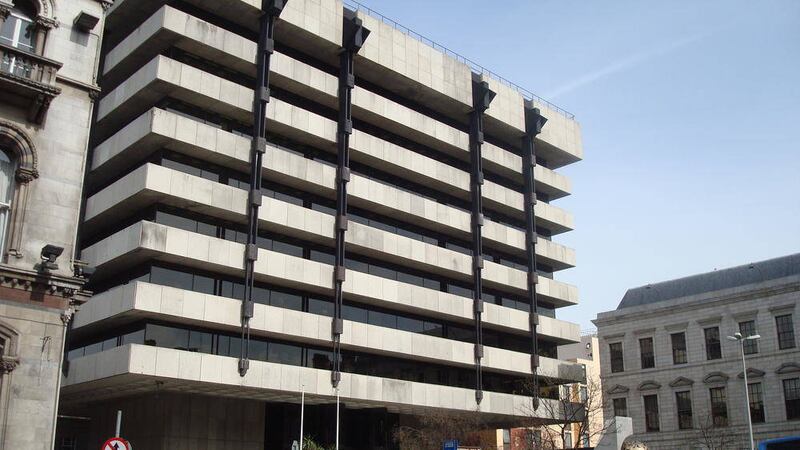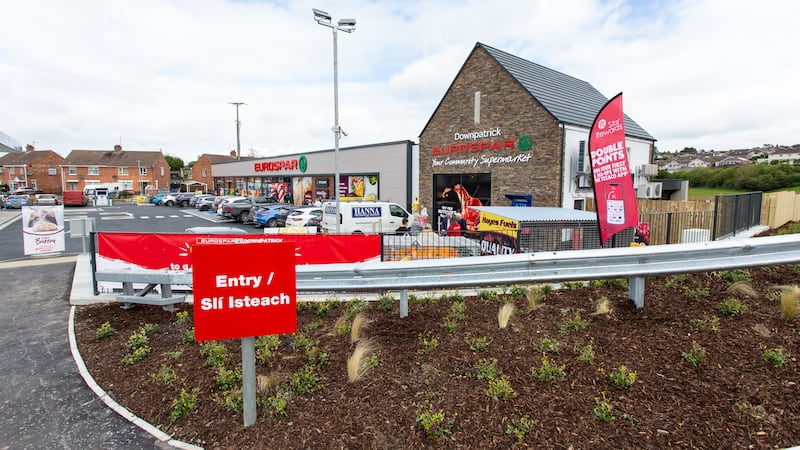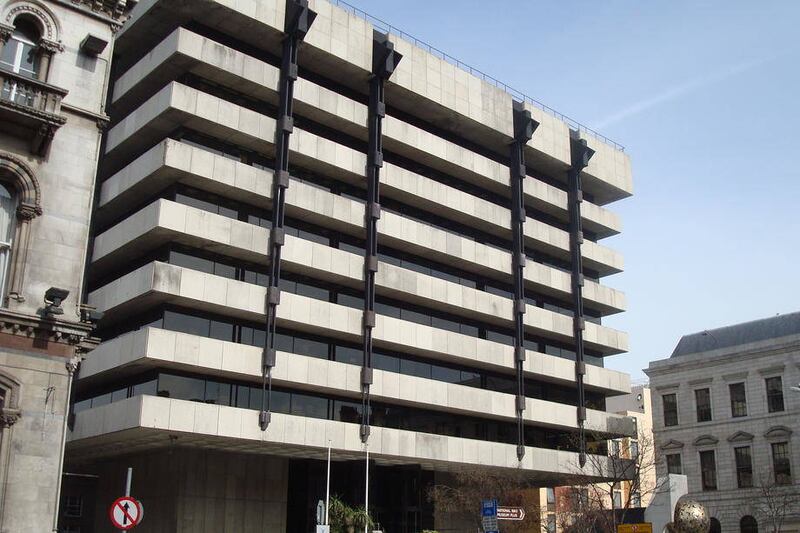THE Republic's banking chief has said he knew the country would apply for a bailout three weeks before it was agreed in late 2010.
Patrick Honohan, the outgoing head of the country's Central Bank, revealed he phoned the country's top morning radio show on November 18 2010 to tell the public what was happening a day after €900 million (£640,000) of deposits flooded out of Irish banks.
It was the biggest shift of finances in a single day before or after the financial crisis.
Mr Honohan said he felt he had to speak out on the day the government opened negotiations in Dublin with international lenders, which became known as the Troika.
"In an attempt to restore depositor and public confidence, I was anxious to make a credible public statement, especially as depositor outflows were accelerating," he told the banking inquiry.
Mr Honohan rang RTE's `Morning Ireland' from Frankfurt where he was attending the European Central Bank's governing council meeting.
"The start of negotiations provided a basis for convincing reassurance, which was clearly needed, and I gave a radio interview to that effect on the morning of November 18," he said.
Mr Honohan said he knew on November 4 2010 that the Republic needed a bailout as borrowing rates on the open markets had shot up.
He revealed negotiations were due to begin between then minister for finance Brian Lenihan and European chiefs on November 11 but were delayed until November 14 when a 20 strong team of Irish officials were involved.
The 65-year-old was appointed governor in 2009, one year after the main Irish banks were guaranteed to the tune of €440 billion (£324 billion) and a year before the Republic ended up with an €85 billion (£62 billion) international bailout.
That taxpayer-funded rescue was €64 billion (£47 billion) with the outgoing governor telling the state inquiry in January that he expected the final bill to be about €40 billion (£29 billion).
Mr Honohan said that he knew the banks needed a bailout of €25-30 billion when he took the job as governor in September 2009.
He said he raised this forecast at the first Central Bank of Ireland board meeting which he led and that he had discussions with Mr Lenihan about the need for a bailout in April 2010 while in France.
He told the Oireachtas inquiry that the late minister wanted to support a Greek bailout at the time believing that it would make money for the Republic.
"That's not the reason, I said. I said the reason is we could be next and he said 'no, I've been talking to people in Brussels and they said Portugal could be next'," Mr Honohan said.
The governor said the major shock in the financial sector over the coming year was the scale of the rescue which was needed by Allied Irish Banks, in the region of €20 billion.
"That was the biggest surprise," he said.
Mr Honohan revealed a third phone call, from May 2010 when he was at Heathrow Airport in London and getting a Tube train.
The International Monetary Fund's representative in the Republic, Professor Ashoka Mody, rang to ask him whether the Republic would consider a "precautionary line of credit".
Mr Honohan said the offer was "out of the blue" but that it was rejected by the Department of Finance.
On the question of how the government should have handled the crisis at the toxic lender Anglo Irish Bank as early as September 2008 when the bank guarantee was being drawn up, Mr Honohan said: "I think the nationalisation should have been done based on what they knew at the time - they knew the business model was broken."
Mr Honohan said he knew legislation had been prepared for the state to take over the Irish Nationwide Building Society and it could have been tweaked to cover Anglo.
"It should have been nationalised, that's clear ... then or at the end of the week," he said.
Mr Honohan said he could not shed any light on whether former European Central Bank president Jean-Claude Trichet threatened the Republic into rescuing the banks.
But he said he believed Mr Trichet's account that the south was not treated any differently than any other European state which was advised not to let a bank fail.
Mr Honohan said he has no way of verifying whether the former ECB head left a voicemail for the minister three days before the blanket guarantee was signed, if the two men spoke or what the content of the message was.
"I don't know why we can't exactly disentangle what was said at that point because it seems like it was rather innocent," Mr Honohan said.
Mr Honohan said the question was whether Mr Trichet had warned "no bank should fail".
He said the former ECB chief has been asked several times and given the same answer: "He said, 'Patrick, the message I gave to the Republic was the same message I gave to everybody - that we must stand by our banks'."
Mr Honohan said he believed Mr Trichet has tried to explain that the south was not given a "special message".
Mr Honohan also revealed the views of a senior official in September 2010 over the state of the Republic banks.
He said someone reflected to him that "Greece is Europe's Bear Stearns but Ireland is the Lehman's".
Mr Honohan told the inquiry there is still huge uncertainty over the full impact the mortgage arrears crisis will have on the financial sector.
He said the Troika had pushed the government to introduce a regime that would bring about faster resolutions and more repossessions.
The inquiry also heard that Mr Lenihan pursued the idea of a bailout with the IMF in September 2010.
He said the possibility of the Republic needing an international loan rescue was floated during an IMF conference in Washington in early October 2010 and the agency questioned if it had the funds to do it.
"Brian Lenihan asked the IMF what a programme would look like," Mr Honohan said.
"Brian Lenihan's view was I think that he needed time to prepare the ground for a major fiscal adjustment."
Mr Honohan was also pressed on why six financial institutions lending mortgages have not been named or sanctioned for breach of the code of practice on mortgage arrears.
He said it is something that may be pursued.
Mr Honohan was also asked for his views on which sectors of society bore the brunt of the Republic's economic collapse and the huge austerity enforced before and during the bailout programme.
"I think the disastrous effects of this whole business have twisted against the poor people," he said.
"It's not just the poor people but I think it has, and I have said that in public, overall net it has been tilted worse, the poor have done worse out of it."



